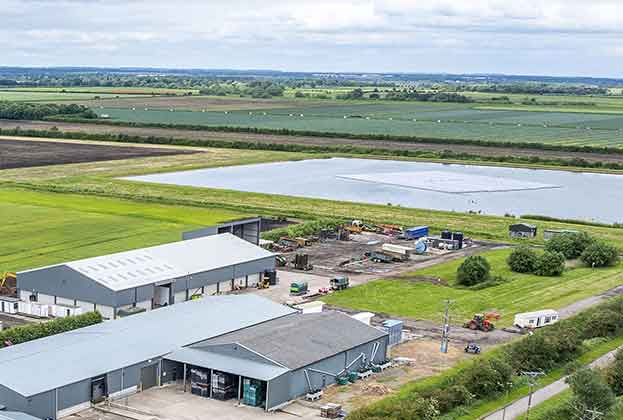The UK energy sector is firmly in the spotlight as we look to tackle the energy trilemma of carbon, costs and security of supply. As I write, around 200 delegates from around the globe are gathering in Bonn to lay the groundwork for this year's COP27 climate summit in Egypt. Meanwhile the cost of living crisis is plunging many into fuel poverty, and the war in Ukraine has highlighted the dependency of many European countries on Russian oil and gas. The argument for replacing traditional fuel demand with other cleaner energy solutions has never been stronger, yet major hurdles face the sector.
Supply chain issues: The renewables boom of the last decade has created rising demand for parts and equipment, many of which are imported. The sector has not escaped inflationary pressures and developers and contractors must factor-in shortages of supply and price rises to their business plans, stepping up communication with suppliers and researching alternative providers. Covid19 continues to impact on global supply chains, the recent lockdown of Shanghai being the most recent example as the majority of solar panels are manufactured in China.
Planning delays: The lion’s share of recent energy announcements from the UK Government are unlikely to bring real benefits to consumers imminently. While nuclear is back on the table, we could be looking at delivery timelines in decades due to the time it takes to design projects and to navigate the planning system.
There is already more than one and a half times the existing renewable energy capacity (mainly wind and solar) in planning, and this will grow significantly in the coming years. However many projects won’t be delivered until the end of the decade (or later) due to grid connection constraints.
The slackening of rules around onshore wind in England has been heavily trailed and more community-based projects are likely to arise. However the bulk of large-scale onshore wind will be focused in Scotland and Wales, where devolved governments are more supportive of the technology. The same focus for improving planning timescales for offshore wind needs to be given to onshore projects across the UK.
Infrastructure challenges: The distribution network operators (DNOs) simply cannot cope with the renewable capacity now coming through. Connection rates are continually pushed back due to infrastructure delays, many to the end of the decade and beyond. Regrettably there is no clarity from Government on plans to tackle fundamental problems within the grid network, or of the role energy storage will play in managing the flow of electricity. The average age of transformers in the UK is 50 years old: a focus on updating and extending our infrastructure holds the key to upscaling delivery.
Skills gap: Strategic consideration must be given to addressing a skills shortage that has arisen due to the rapid growth of renewables as the energy industry transforms. In short, operators are struggling to offer re-training in new and emerging technologies, or indeed training for new recruits eager to join the fast-expanding sector. As well as business managers and researchers, we need more engineers to deliver technologies like heat pumps, battery storage and solar, as well as computer scientists to allow these technologies to be installed in a smart way so that they communicate with each other and with the grid.
Escalating energy costs have enhanced the comparative strength of renewables’ business models, as well as the resolve of governments, investors and innovative developers. And as has already been seen, the rapid expansion of technologies will lead to further economies of scale and decreasing costs.
The renewables industry remains in its infancy in many aspects, but must mature at a faster rate than it has done over the last decade if it is to meet the challenges presented by the energy trilemma. It can certainly do so with targeted investment, regulation and joined-up thinking.
While we may be facing some thorny immediate pressures, the increased deployment of renewables and low carbon technologies will undoubtedly benefit the economy over the longer term as the energy sector transitions, ultimately creating a more stable market place.
.jpg)
.jpg)







.jpg)
.jpg)